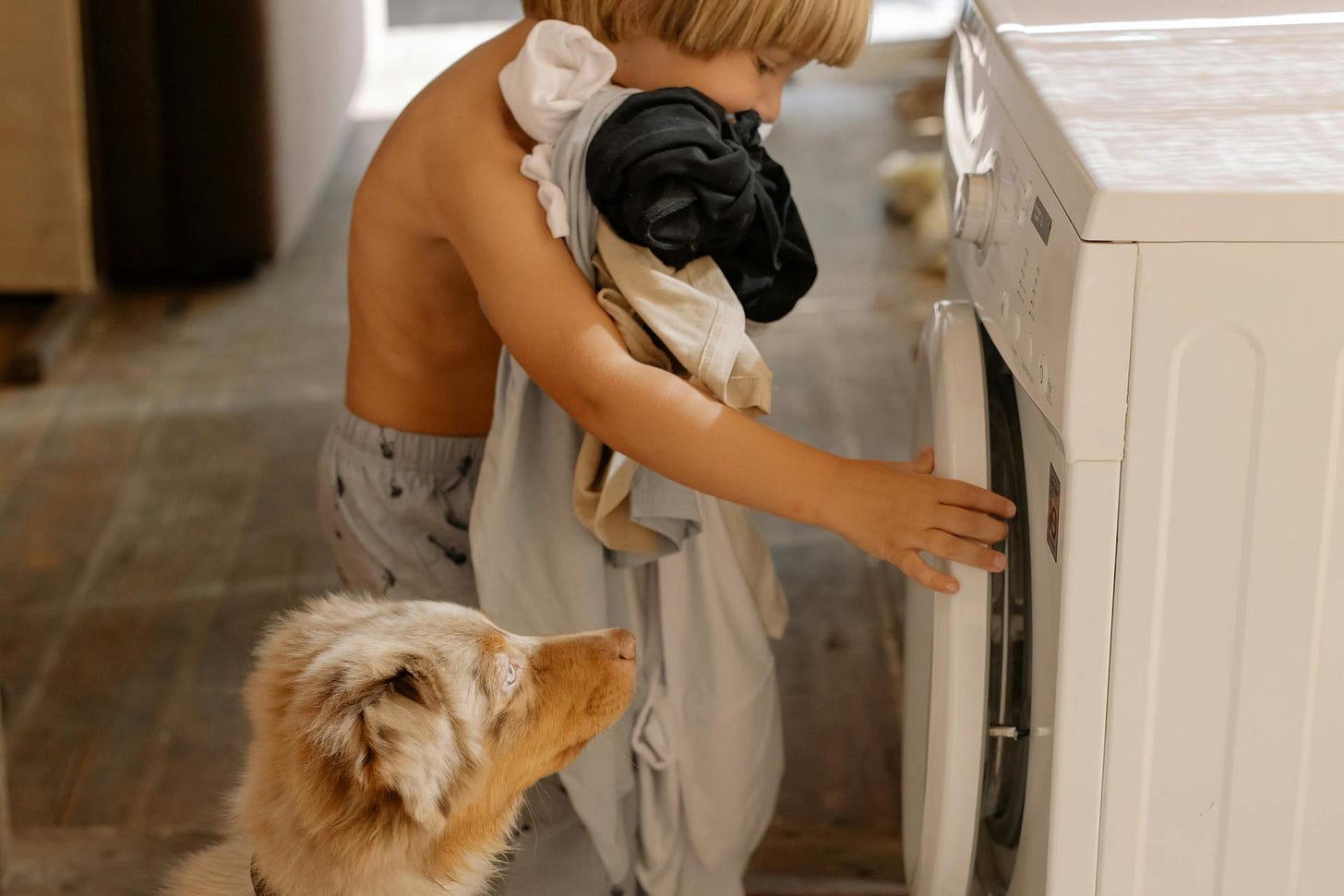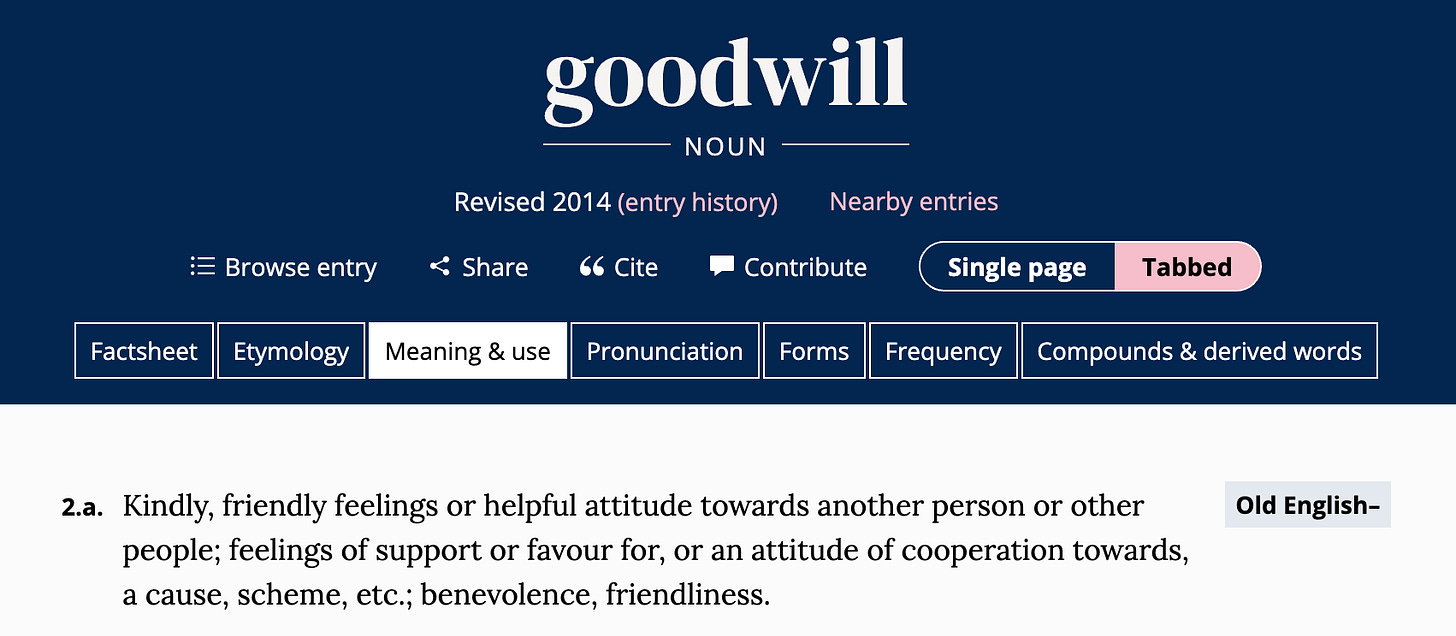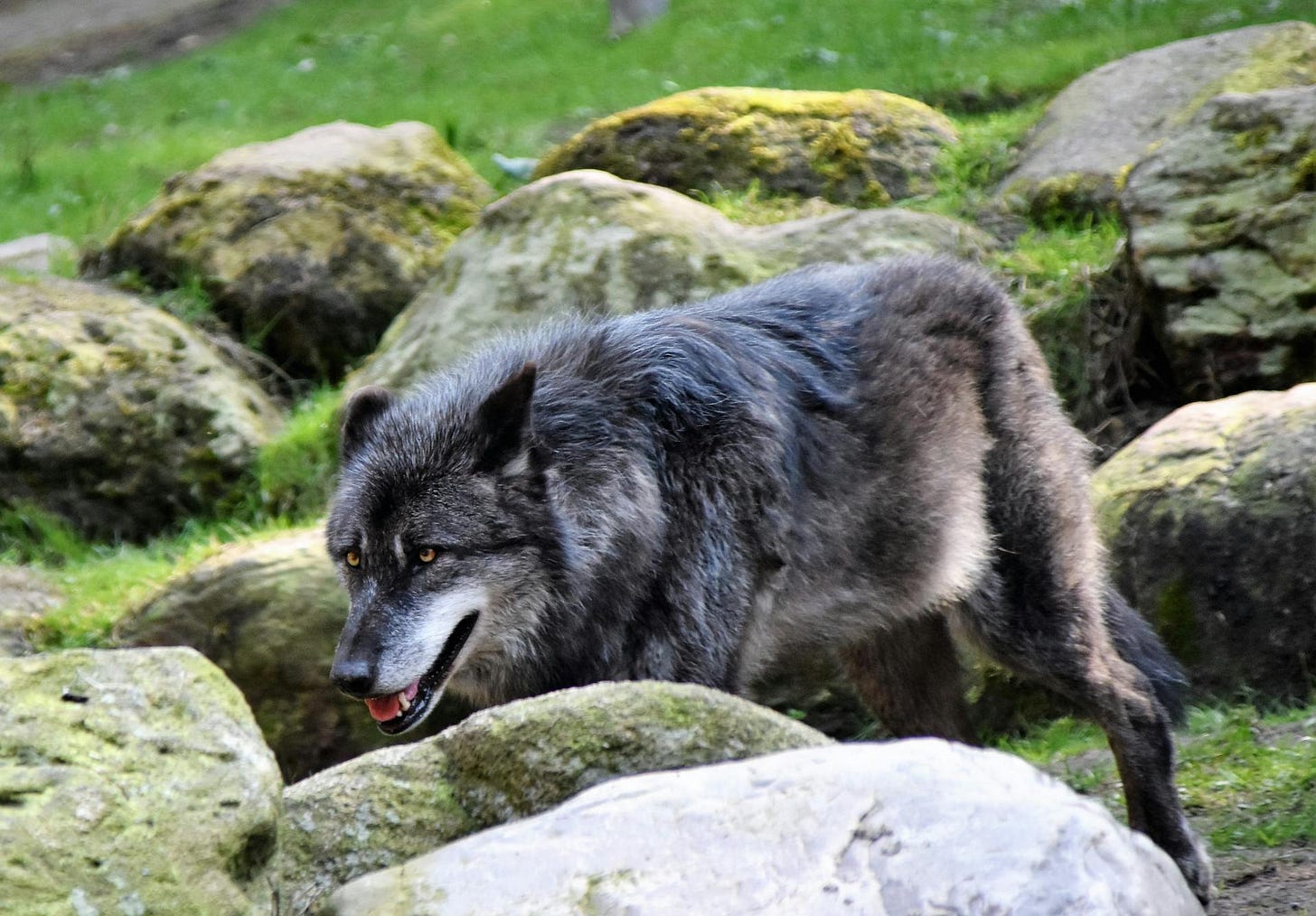Goodwill: The Bidirectional Bridge
Love, Trust, Respect... none of it matters without the foundation of goodwill.
Goodwill is the bedrock of human connection—a bidirectional bridge that must be established before trust, love, or respect can take root. Without it, these feelings are fragile, mere facades that crumble under life’s pressures, unable to withstand the winds of fate.
Dogs and Humans: A Lesson in Goodwill
The phrase “man’s best friend” exists for a reason. No animal has allied itself with humanity like the dog. Dogs are the ultimate pet, and no other creature comes close. Why? While many have explored the deep co-evolutionary bond between humans and canines, I want to focus on the core mechanism: goodwill.
Dogs grant goodwill instantly, and in doing so, they spark reciprocal goodwill in us. Sure, there are exceptions—abused dogs may be wary, and some humans betray that trust—but these only prove the rule. A puppy, just a few weeks old, offers boundless goodwill to its new owner. For a child, this is often their first encounter with unconditional acceptance from a non-family member, making it one of the most fulfilling experiences of childhood.

This exchange triggers a cascade of oxytocin and other hormones in a healthy human, compelling them to return that goodwill. Within an hour, a boy and his dog are bonded. After a decade, they’re soulmates, their connection built on a foundation of mutual goodwill. The dog’s trust and love flow from this wellspring, and critically, the dog always goes first. By offering goodwill immediately, the dog sets the stage for a predictable, positive human response—unless the human is truly malicious.
This dynamic is the secret to all meaningful human relationships. Aristotle nailed it over two millennia ago:
For many people have goodwill to those whom they have not seen but judge to be good or useful; and one of these might return this feeling. These people seem to bear goodwill to each other; but how could one call them friends when they do not know their mutual feelings? To be friends, then, they must be mutually recognized as bearing goodwill and wishing well to each other for one of the aforesaid reasons.
— Aristotle, Nicomachean Ethics (350 BC)
Prioritizing Goodwill in Intimate Relationships
In your closest relationships—lovers, dear friends, family—goodwill must be your sole focus. You must embody both the puppy and the boy: grant goodwill freely and expect it in return. This doesn’t apply to strangers, colleagues, or casual acquaintances, where unchecked goodwill can leave you vulnerable. That’s a topic for another piece. But with your intimate circle, goodwill is non-negotiable. Long-term love cannot endure without it.
A Tale of Two Dates: Goodwill in Action
I recently experienced a perfect case study in goodwill through two back-to-back dates—one with a budding romance, the other with a former partner.
Date One: Goodwill Prevails
The first date started with a miscommunication. Women often say one thing but want another, and I’m no expert at navigating this (although I am trying to get better). I was “asked” to do X but, predictably, she wanted Y. I misstepped for the first five minutes. But my date, with kindness and goodwill, gently corrected me, explaining what she needed. I recalibrated, and within minutes, we were on track for a phenomenal evening.
Date Two: The Absence of Goodwill
The second date also began with a miscommunication, but the outcome was starkly different. Instead of correcting course, my date—someone I’ve known for years—let the conversation veer off for an hour, silently stewing. She engaged, asked questions, and commented, all while harboring frustration. Finally, she unleashed a minor explosion. This wasn’t surprising given our history, but it was instructive. I had been intentionally injecting goodwill into our interactions, framing topics with kindness, yet she offered none in return. The contrast was clear: the first date thrived on mutual goodwill; the second was doomed by its absence.
The Choice of Goodwill
Goodwill is unique because it’s a choice—a binary switch you can flip on or off. Unlike trust, love, or respect, which must be earned or built, goodwill is immediate and unconditional. In intimate relationships, you must grant it every time, and you should expect it in return. If you can’t offer goodwill to someone, or if they can’t offer it to you, it’s time to reconsider the relationship.
Like a puppy, you must learn quickly whether goodwill is safe. If it’s not—if you’re in an “abusive home”—have the courage to walk away or, at the very least, recognize that you can choose to give goodwill and start doing so. If your partner or friend can’t reciprocate, that’s a signal to move on.
Be the Dog
In your closest relationships, be the dog. Grant goodwill unconditionally, and observe whether it’s returned. If you’ve said yes to a date or call someone a dear friend, give goodwill without hesitation. If you can’t, or if they can’t, don’t torture yourself or others by clinging to love without this foundation. Goodwill is the bidirectional bridge that makes trust, love, and respect possible. Choose it first and always and see if the other person can do the same.
Many areas of life require us to be the wolf. But allowing your inner wolf to dominate any of your intimate relationships will lead only to pain for you and the other person.
Thanks for reading.




You have discovered the problem with goodwill with some women (and likely men, IDK I don't date them). They oftentimes get the ick from goodwill. Back in my dating career I was shocked at how my innocent goodwill was taken by women and the attitude I got back from it. They acted as if they hated it. Sadly I got much better results when I was more of an asshole.